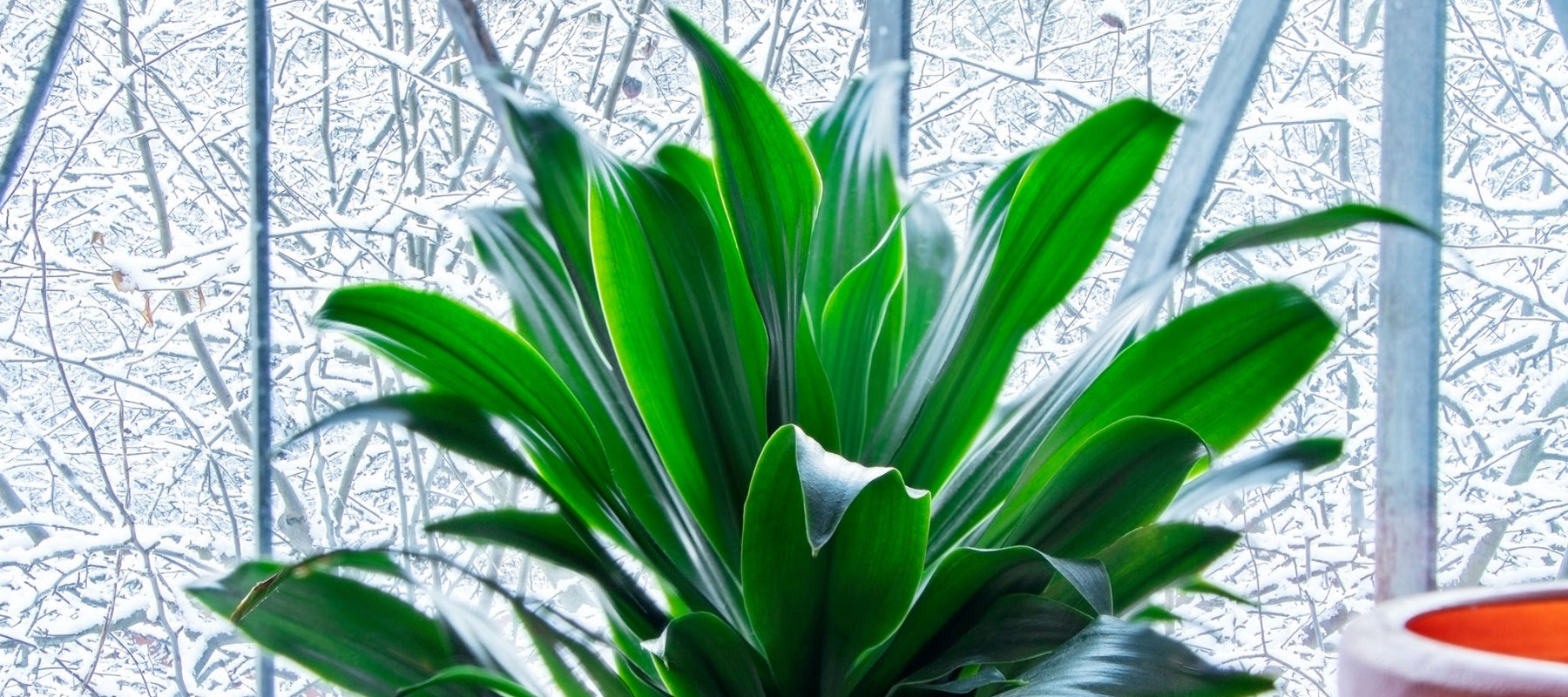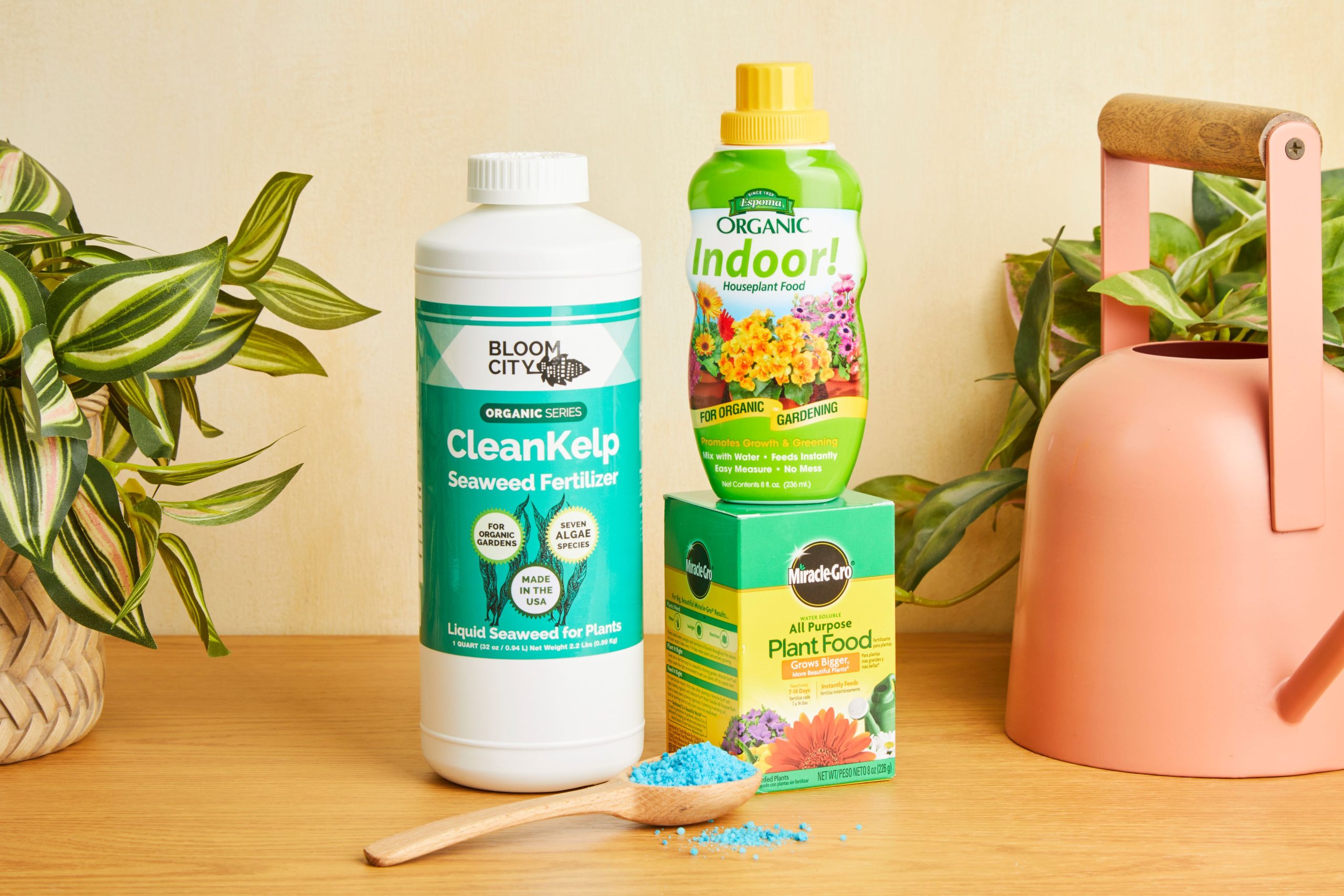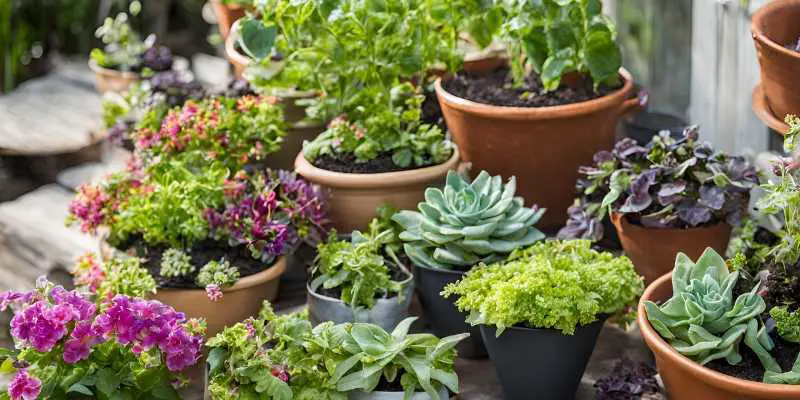Spider Plant, Snake Plant, and ZZ Plant are indoor plants that can withstand both heat and cold. These resilient plants thrive in varying conditions.
Indoor plants enhance home aesthetics and improve air quality. Finding plants that can tolerate temperature fluctuations is essential. Spider Plant, Snake Plant, and ZZ Plant are perfect choices. These plants adapt to different environments, making them ideal for homes with inconsistent temperatures.
Spider Plants are known for their air-purifying qualities. Snake Plants are low-maintenance and hardy. ZZ Plants require minimal care and are drought-tolerant. These plants not only survive but also thrive in challenging conditions. They add greenery and freshness to your living space while being easy to care for.

Credit: hortology.co.uk
Introduction To Hardy Indoor Plants
Hardy indoor plants are perfect for any home or office. They can handle both heat and cold. These plants are easy to care for and look great. Let’s explore why these resilient plants are a great choice.
Why Choose Resilient Plants
Resilient plants are tough. They can survive in different temperatures. This makes them perfect for any climate. You do not have to worry about them dying easily. These plants can handle both summer heat and winter cold.
- Easy to care for
- Survive in different climates
- Last longer than other plants
Benefits Of Having Indoor Plants
Indoor plants offer many benefits. They clean the air and look beautiful. They also help you feel calm and happy.
| Benefit | Details |
|---|---|
| Air Purification | Plants remove toxins from the air. |
| Stress Relief | Plants help reduce stress and anxiety. |
| Decoration | Plants add beauty to any room. |
Choose hardy indoor plants for a stress-free gardening experience. Enjoy their beauty all year round.
Criteria For Heat And Cold Resistance
Indoor plants that withstand both heat and cold are special. They have unique traits helping them survive extreme conditions. Knowing these traits helps choose the right plants for your home.
Key Features Of Hardy Plants
- Thick Leaves: These store water, helping plants during dry spells.
- Deep Roots: Deep roots reach water far underground.
- Flexible Stems: Flexible stems sway with the wind, reducing damage.
- Resilient Cell Structure: Strong cells resist freezing and overheating.
Adaptation Mechanisms
Plants use various mechanisms to adapt to heat and cold. These adaptations ensure survival in harsh conditions.
| Mechanism | Description |
|---|---|
| Dormancy | Plants enter a rest phase during extreme cold. |
| Transpiration Regulation | Plants adjust water loss through leaves. |
| Leaf Shedding | Plants drop leaves to reduce water loss. |
| Heat Shock Proteins | Proteins protect plants during sudden heat. |
These features and mechanisms are vital for plant survival. They allow plants to thrive in challenging environments.
Top Heat-resistant Indoor Plants
Indoor plants that can withstand high temperatures are perfect for those hot days. These plants thrive even in the warmest conditions. Here are some top heat-resistant indoor plants that will flourish in your home.
Succulents And Cacti
Succulents and cacti are excellent choices for heat-resistant plants. They store water in their leaves and stems. This makes them perfect for hot climates.
- Low Maintenance: Succulents and cacti require minimal care.
- Variety: There are many types to choose from.
- Decorative: They add a unique look to your home.
Some popular succulents and cacti include:
- Jade Plant
- Snake Plant
- Echeveria
- Barrel Cactus
- Agave
Aloe Vera: A Multipurpose Survivor
Aloe Vera is a top pick for heat-resistant indoor plants. It’s not just a plant; it’s a healer too.
| Feature | Description |
|---|---|
| Heat Resistance | Thrives in hot conditions. |
| Water Needs | Minimal; water once every few weeks. |
| Health Benefits | Soothes burns and improves skin health. |
Aloe Vera is easy to grow and maintain. It can survive in different climates. Keep it in a sunny spot and watch it thrive.
Cold-tolerant Indoor Plants
Indoor plants that can withstand cold are precious during the winter. They thrive despite lower temperatures and bring life to indoor spaces. These plants are resilient and often easy to care for. Let’s explore some cold-tolerant indoor plants that can beautify your home.
Snake Plant: The Tough Air Purifier
The Snake Plant, also known as Sansevieria, is a hardy choice. It tolerates cold temperatures and low light. Snake Plants are also excellent air purifiers, removing toxins from the air.
- Temperature: Can tolerate temperatures as low as 50°F (10°C).
- Light: Thrives in low to bright indirect light.
- Watering: Water sparingly, allowing soil to dry between waterings.
Snake Plants have striking, upright leaves that add elegance to any room. They are perfect for beginners due to their low maintenance.
Cast Iron Plant: Living Up To Its Name
The Cast Iron Plant, or Aspidistra elatior, is named for its durability. This plant can survive in very cold conditions and low light. It is an excellent option for those who want a tough, attractive plant.
- Temperature: Can withstand temperatures as low as 45°F (7°C).
- Light: Prefers low to moderate indirect light.
- Watering: Water when the top inch of soil is dry.
The Cast Iron Plant has lush, green leaves that bring a touch of nature indoors. It is a great choice for those with less-than-ideal indoor conditions.
Dual Hardy Plants For Every Season
Indoor plants bring life to our homes. Some plants can withstand heat and cold. These dual hardy plants thrive in any season. Let’s explore a few that are both resilient and beautiful.
Spider Plant: Easy Care And Hardy
Spider plants are a popular choice for many reasons. They are easy to care for and can survive in various conditions. Their long, arching leaves add a touch of elegance to any room.
Here are some key features of spider plants:
- Tolerates both heat and cold
- Thrives in indirect sunlight
- Low maintenance and easy to propagate
| Feature | Description |
|---|---|
| Watering | Allow soil to dry between waterings |
| Light | Indirect sunlight preferred |
| Temperature | Survives in a range of 35-90°F |
Peace Lily: Beauty And Resilience
The peace lily is known for its stunning white flowers. It is also resilient and can handle different climates. This plant purifies the air and adds serenity to your space.
Key benefits of peace lilies include:
- Withstands temperature fluctuations
- Prefers low to medium light
- Easy to care for and maintain
| Feature | Description |
|---|---|
| Watering | Keep soil moist but not soggy |
| Light | Low to medium light preferred |
| Temperature | Thrives in a range of 40-90°F |
Caring For Your Hardy Indoor Plants
Indoor plants that can withstand both heat and cold are a great choice. They are resilient and adaptable. To keep them healthy, follow these care tips.
Watering And Feeding Tips
Water your hardy indoor plants sparingly. Over-watering can harm them. Use a well-draining pot to avoid waterlogging.
- Check soil moisture before watering.
- Use room temperature water.
- Feed with balanced liquid fertilizer monthly.
Temperature And Light Requirements
Hardy indoor plants thrive in a range of temperatures. They can adapt to both warm and cool environments.
- Keep plants away from direct heat sources.
- Place them in indirect sunlight.
- Ensure they get at least 4-6 hours of light daily.
Monitor the room temperature regularly. Ideal temperatures range from 60°F to 75°F.
Common Challenges And Solutions
Growing indoor plants that can withstand both heat and cold involves unique challenges. Understanding these challenges helps you keep your plants healthy. Let’s explore how to deal with common issues like pests and environmental stress.
Dealing With Pests
Pests can be a major problem for indoor plants. They can damage leaves, stems, and roots. Here are some common pests and solutions:
| Pest | Solution |
|---|---|
| Spider Mites | Use a mild soap solution. Spray on affected areas. |
| Aphids | Introduce ladybugs. They eat aphids. |
| Mealybugs | Wipe with rubbing alcohol. Use a cotton swab. |
Overcoming Environmental Stress
Indoor plants face stress from temperature changes and low humidity. Here are some solutions:
- Temperature Fluctuations: Keep plants away from drafts and heat sources.
- Low Humidity: Use a humidifier. Group plants together to increase humidity.
- Insufficient Light: Use grow lights. Rotate plants for even light exposure.
Maintaining the right environment is crucial for plant health. Use these tips to ensure your plants thrive in any condition.
Incorporating Hardy Plants Into Your Home
Indoor plants add life and color to any space. Some plants can handle both heat and cold. These hardy plants thrive indoors. They make your home look fresh and inviting. Let’s explore ways to use these resilient plants in your home.
Design Ideas And Tips
Use hardy plants to create stunning designs. Mix different plant sizes and shapes. Place tall plants in corners. Use small plants on shelves and tables. Choose pots that match your decor. Bright-colored pots add a pop of color. Neutral pots keep the focus on the plants.
Consider plant stands for a layered look. Hang plants in macrame hangers. This saves space and adds a boho touch. Arrange plants in groups for a lush, green vibe. Remember to rotate plants for even growth.
Creating An Indoor Garden Oasis
Turn a room into a plant paradise. Start with hardy plants that can handle temperature changes. Use a mix of leafy plants and succulents. These add variety and texture.
Here are some hardy plants for your indoor garden:
- Snake Plant: Thrives in low light and can handle dry air.
- Aloe Vera: Needs little water and loves sunlight.
- ZZ Plant: Grows well in low light and withstands temperature changes.
- Spider Plant: Tolerates varied temperatures and is easy to care for.
Incorporate these plants into your space:
| Plant | Light Needs | Watering Needs |
|---|---|---|
| Snake Plant | Low to bright light | Water when soil is dry |
| Aloe Vera | Bright, indirect light | Water sparingly |
| ZZ Plant | Low to bright light | Water when soil is dry |
| Spider Plant | Indirect light | Water regularly |
Use rocks and pebbles for decoration. These add a natural touch. Place them on top of the soil. This also helps retain moisture. Create a cozy corner with a mix of plants. Add a comfortable chair and some books. Your indoor garden oasis will be your new favorite spot.

Credit: hortology.co.uk
Frequently Asked Questions
What Plants Tolerate Heat And Cold?
Some plants that tolerate both heat and cold include lavender, yarrow, sedum, Russian sage, and daylilies. These resilient plants thrive in varying climates, providing beauty and durability in your garden.
What Is The Most Hardiest Indoor Plant?
The snake plant is considered the hardiest indoor plant. It’s low-maintenance and tolerates low light and irregular watering.
Can House Plants Withstand Cold?
Most house plants cannot withstand cold temperatures. Keep them in a warm environment, above 50°F (10°C), for optimal growth.
What Indoor Plants Are Good In The Heat?
Succulents, snake plants, and ZZ plants thrive in heat. These indoor plants tolerate high temperatures and low humidity.
Conclusion
Choosing the right indoor plants can make a big difference in your home’s environment. Some plants thrive in both heat and cold. These resilient plants offer beauty and practicality, ensuring your space stays green year-round. Consider adding these versatile indoor plants to enjoy a healthier, more vibrant living space.

My mission is to help you bring the beauty of nature indoors with expert advice, detailed plant care guides, and creative design ideas.




